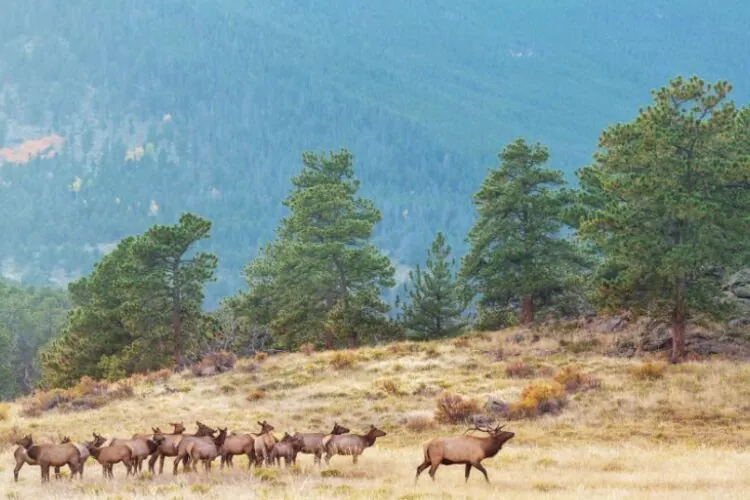What is the Cowichan decision and why is everyone so worked up?

As discussed in our previous article, B.C. Supreme Court recognizes Cowichan Aboriginal title in landmark ruling, The British Columbia Supreme Court recently issued its landmark decision in Cowichan Tribes v Canada (Attorney General), 2025 BCSC 1490.
Spanning over the course of 11 years, including 513 days of hearing, the trial was one of the most complex and is likely the longest in Canadian history.
Ultimately, the Court recognized Aboriginal title to the historic village site of Tl’uqtinus as well as an Aboriginal right to fish the south arm of the Fraser River.
Most notably, these declarations were made over – ultimately displacing interest in some – fee simple lands. Longstanding as one of the most significant questions regarding the current system of land ownership in Canada, this decision could prove to be highly consequential.
Background
Cowichan Tribes, Stz’uminus First Nation, Penelakut Tribe, Halalt First Nation and several individual leaders (Cowichan or the Cowichan Peoples) brought an action, seeking:
- Declarations of Aboriginal title over approximately 1,846 acres on Lulu Island, including submerged land (the Claim Area)
- Recognition of an Aboriginal Right to fish the south arm of the Fraser River
The Claim Area consists of lands owned in fee simple by Canada, the Vancouver Fraser Port Authority (VFPA), the City of Richmond (Richmond) and private third parties.
The claim was opposed by the federal and provincial governments (the Crown), VFPA, Richmond, the Musqueam Indian Band (Musqueam) and the Tsawwassen First Nation (TFN).
Declarations
1. The descendants of the Cowichan Nation have Aboriginal title to a portion of the Lands of Tl’uqtinus
To establish Aboriginal title, the First Nation must prove sufficient occupation of the land claimed to establish title at the time of assertion of European sovereignty, continuity of occupation where present occupation is relied on and exclusive historic occupation.
The Court found that Cowichan had established sufficient occupation and historic occupation and affirmed that they did not need to establish continuity as it was not being relied upon to support the claim.
Interestingly, Cowichan submitted that their title to Tl’uqtinus includes submerged lands extending into the south arm of the Fraser River. The guidance in this area is limited, as the Supreme Court of Canada (SCC) has yet to address whether Aboriginal title can exist in water or land submerged by water. To address Cowichan’s claim, Justice Young relied on the usual test to establish Aboriginal title to find that the Cowichan Title Lands include submerged lands. This portion of the decision is one to follow as the appeal(s) are heard and ultimately decided.
2. The Crown grants of fee simple and the Crown vesting of the soil and freehold interest in the Richmond Tl’uqtinus Lands (Highways) unjustifiably infringe the Cowichan Nation Aboriginal title to these lands
In 1853, Governor James Douglas told the Cowichan Peoples that the Queen had given him a special charge to treat them with justice and humanity, so long as they remained at peace with the settlements. Justice Young found that while the promise fell short of a constitutional commitment, it bore the hallmarks of one, therefore engaging the honour of the Crown.
As part of this promise, Governor Douglas appropriated Indian settlement lands, including the Cowichan Title Lands, from the Crown’s land disposition processes, with the intention that they would eventually be converted into Indian Reserves.
At that time, Cowichan continued to occupy their village and surrounding areas. However, the lands were never established as an Indian Reserve. In time, the lands were sold to settlers without Cowichan’s knowledge or consent.
Because occupied Indian settlements were appropriated, and thus could not be sold, Justice Young found that most of the Crown grants in the Cowichan Title Lands were made without statutory authority. Justice Young also found that the Crown grants were made without constitutional authority because legislation limited the province’s ability to sell the lands without first dealing with Cowichan’s interest.
3. Except for Canada’s fee simple titles and interests in certain lands, Canada and Richmond’s fee simple titles and interests in the Cowichan Title Lands are defective and invalid
The tension between fee simple and Aboriginal title largely relates to whether or not fee simple is truly indefeasible or whether Aboriginal title could upset – or even cancel – those interests in land.
In Delgamuukw, the SCC held that the province has lacked the jurisdiction to extinguish Aboriginal rights since Confederation. Justice Young adopted this line of reasoning and further stated that Aboriginal title is not inferior to other rights and interests in land. Acknowledging this tension and the resulting discomfort that would inevitably arise from a change to the status quo in land ownership, Justice Young stated that uncertainty should not cause courts to prioritize fee simple interests over Aboriginal title.
Justice Young rejected that Cowichan’s Aboriginal title was permanently displaced when the provincial Crown grants of fee simple were issued. Rather, Cowichan’s Aboriginal title burdened and burdens the land over which the Crown grants of fee simple interest were issued.
Justice Young determined that Aboriginal title and fee simple can coexist, as the latter is a derivative of Crown title.
Justice Young concluded that Cowichan’s Aboriginal title, which is grounded in the prior occupation of Cowichan’s ancestors, and a constitutionally protected interest in land, is a senior interest in land vis-a-vis the fee simple titles which derive from the Crown grants. In Justice Young’s view, Aboriginal title does not necessarily defeat fee simple title; rather, where Aboriginal title and fee simple interests exist in the same land, the respective interests must be addressed within the broader framework of reconciliation:
“This is an exercise which engages the Crown, and which must be done with regard to the particular circumstances and interests at play.”
4. Canada owes a duty to negotiate in good faith reconciliation of Canada’s fee simple interests in certain lands with Cowichan Aboriginal title, in a manner consistent with the honour of the Crown
Justice Young found that Canada breached its duty to consult with the Cowichan Peoples when the Crown grants of fee simple interests were contemplated. Thus, the grants are incompatible and do not accord with the fiduciary duty that Canada now owes Cowichan – therefore, the infringement is unjustified.
Justice Young also found that Canada and VFPA breached the duty to consult Cowichan with respect to the infringing activities on Cowichan Title Lands and have not demonstrated that the infringing activities on the Cowichan Title Lands are consistent with the Crown’s fiduciary obligations to Cowichan in respect of their Aboriginal title. Accordingly, the infringing activities are unjustified.
Finally, Justice Young found that Richmond’s equitable defences of bona fide purchaser for value and laches were not made out.
While Justice Young found that Aboriginal title and fee simple interests can coexist, the ability to exercise the associated rights with each title conflict. In Justice Young’s view, where Aboriginal title and fee simple title exist in respect of the same parcel of land, one set of rights must largely yield to the other. As such, the Crown grants of fee simple interest adversely interfered with and continue to interfere with the exercise of Cowichan’s Aboriginal title to the Cowichan Title Lands and are a prima facie infringement of Aboriginal title.
5. BC owes a duty to Cowichan to negotiate in good faith reconciliation of the Crown granted fee simple interests held by third parties and the Crown vesting of the soil and freehold interest to Richmond with Cowichan Aboriginal title, in a manner consistent with the honour of the Crown
Similarly, Justice Young found that BC could not grant fee simple interests without first dealing with Cowichan’s Aboriginal title to the lands.
6. The descendants of the Cowichan Nation have an Aboriginal right to fish the Fraser River for food purposes
The written and oral history satisfied Justice Young that prior to, at and after European contact, Cowichan fished the south arm of the Fraser River for food; it was integral to their distinctive culture. As such, Cowichan’s Aboriginal right to fish was recognized.
Key Takeaways
What does it mean that “we are all here to stay”? The answer will depend on who you ask.
This case speaks to some of the foundational questions of Canada, such as what are the legal interests associated with fee simple and Aboriginal title and how do the two interact? What can happen in the event of a conflict?
To some, the decision is a logical and predictable outcome based on the history and jurisprudence of Canada. To others, the decision is a threat and concern.
One of the main takeaways from the decision is that the obligation to meaningfully address the tensions between Aboriginal title and fee simple ultimately rests with the Crown.
Here, the Court found that certain fee simple interests were defective and invalid; however, each case is fact-specific and any that come forward in the future will be addressed on their merits.
For now, this decision provides much-needed direction and clarity for the interpretation of the law on these critical issues. And, of course, this is not the final word on these matters – it’s just the beginning. Either way, the decision has been appealed, and it is now up to the Court of Appeal (and likely the SCC) to provide final guidance. Legal certainty in this area may assist in answering the question of what it means that “we are all here to stay.”
Note: This article is of a general nature only and is not exhaustive of all possible legal rights or remedies. In addition, laws may change over time and should be interpreted only in the context of particular circumstances such that these materials are not intended to be relied upon or taken as legal advice or opinion. Readers should consult a legal professional for specific advice in any particular situation.






